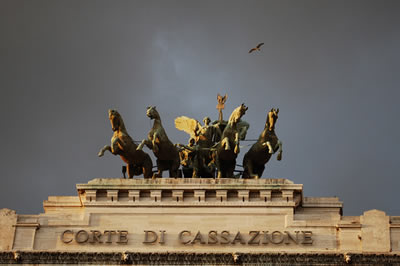


In a judgment handed down on 30 September 2016 the Italian Supreme Court, First Civil Division, rejected an appeal by the Administration and the Public Prosecutor against a decision by the Court of Appeal of Turin of 2014. On appeal judges reversed the first instance court that upheld the refusal by the civil status registrar to recognize and register a Spanish birth certificate mentioning two mothers.
There was no obtacle to the registration ("trascrizione") of such a certificate in Italy, the Supreme Court said. The gestational mother was a Spanish citizen, whereas the Italian co-mother donated her egg to the partner, holding the status of spouse under Spanish law. The Court reviewed at length the concept of ordre public (public policy) and narrowed it down considerably to those principles that are entrenched in the Constitution and that no ordinary (statutory) law could alter. As the current law on assisted reproductive techniques has already been found by the Italian Constitutional Court to represent but a choice among many possibilities open to the Parliament to opt for, heterologous insemination (i.e. with donated gametes), currently accessible to different-gender couples, but not allowed to lesbian couples, cannot be said to collide with a constitutionally binding principle.
Further argument based on non-discrimination, best interest of the child, citizenship rights, conflict of laws and other principles added to the conclusion that the Spanish birth must be given full recognition in Italy. The Supreme Court cited leading case-law by the German (judgment granting full recognition to two fathers thanks to surrogacy) and Swiss Supreme Court.
Public policy represents the major argument in challenging the validity of foreign certificates recognizing two mothers or fathers. This clear-cut decision opens new scenarios for recognition of same-gender parentage, but it has been poorly covered by the Italian press. Other ground-breaking decisions in matters of parentage are expected in the upcoming months.
Alexander Schuster
The judgment